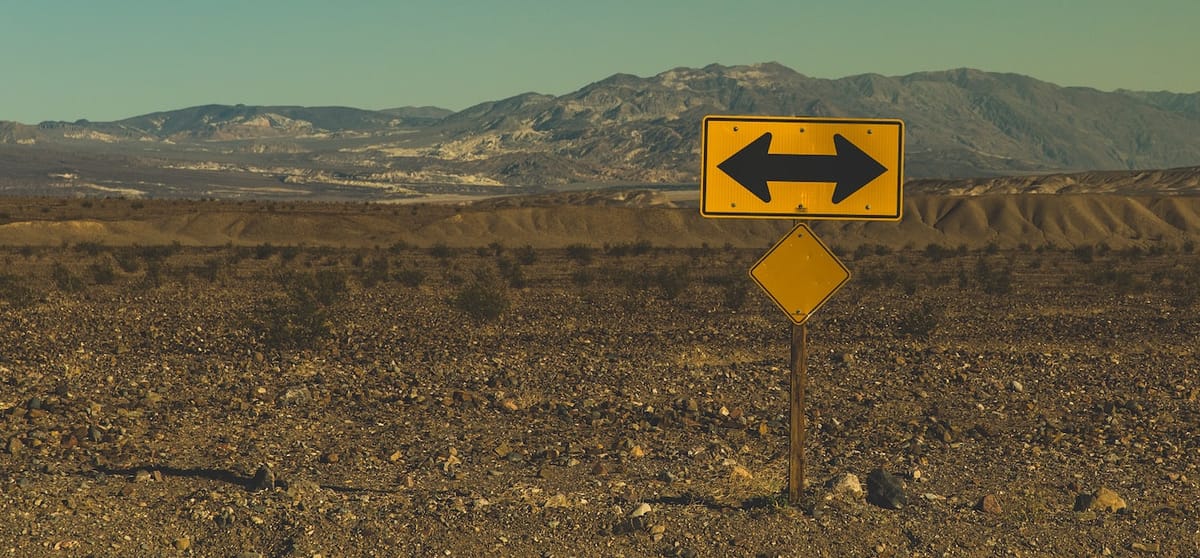Direction vs. Destination
a strategy for healthier goals

This year, I was hellbent on running a sub-3-hour marathon. Naturally, I devised a ludicrous 12-week training plan to ensure I'd break three on race day.
Result: Injured two weeks into training.
You can't run 60 miles a week, twice, if your previous weekly mileage was 30. My knee strained, and I had to considerably reduce my running volume for a month. I ramped up too quickly, and my body returned to the starting line.
I overtrained. But at the time, I envisioned crossing the line in under three hours, achieving my goal, and knocking over 18 minutes off my PR. That mirage lived rent-free in my head during those two weeks.
We all have goals. But they are never enough.
You don't plan your life once and carry it with you until death. Goals change daily or suddenly appear.
When we achieve these goals, we realize they are merely milestones. Not an ending but a small step in a long life. Why can we never find the finish line?
I call these Destination Goals: the framework that allowed our species to develop a prefrontal cortex, heavy machinery, and the pervasive Tiktok algorithm. They're a gift and a curse.
Have you ever achieved something huge only to feel nothing? You realize it was pointless, doesn't make you happier, or is only the beginning of a longer, tougher journey?
Destination goals are set based on our present desires and ideals. We create them today and believe they will bring happiness in the future. However,
We suck at predicting the future.
We cannot forecast the weather, stock market, or a baseball game with certainty; least of all human behavior and where we'll end up in 30 years.
Destination goals are outdated the minute after their creation. We spend decades pursuing something outlined decades ago, measuring our happiness by a goal we created when we were different people.
There is another approach.
Direction Goals focus on achievement while cultivating happiness in the present moment. Direction goals choose paths instead of outcomes. Follow a journey instead of an arbitrary point.
Unlike their counterparts, direction goals must adapt to the present.
They give guidance, but leave the details open to reinterpretation.
You reevaluate your goals regularly, and avoid the future-prediction skills necessary for destination goals to work.
We can reframe destination goals with direction:
Destination: I will attend X university and study X major.
Direction: I'll look for the college that suits me today and change my major if necessary and/or if my interests change.
Destination: I must make six figures as an X to be happy.
Direction: If I love my work and think before spending, the size of my salary will be irrelevant.
Destination: I have to work all day to achieve my dreams.
Direction: I'll never achieve my dreams; because they will keep shifting. I should focus on finding balance in the work instead of compromising my present life for an indefinite future.
During my injury recovery, I thought a lot about how I would not be breaking three this year. After the initial frustration, I realized my love for running doesn't come from PRs and medals.
It's the flood of joy during a run through Belmont on a crisp day in November. From the sense of peace after a fatiguing long run. And from the legendary Runner's High.
I run for the feeling it gives me, today. Running shakes out the wiry thoughts in my head, one stride at a time.
Destination: I need to break 3 hours in the marathon this year.
Direction: I love to run. And I'll run until race day and have some fun once the horn sounds at 7 AM in the freezing streets of Philadelphia.
I set a new PR of 3:07:05, knocking 11 minutes off my previous time.
I accredit my success to the direction/destination reframe and a fistful of energy gels.
Cheers,
Connor
P.S: Share this with someone! Thank you xxx